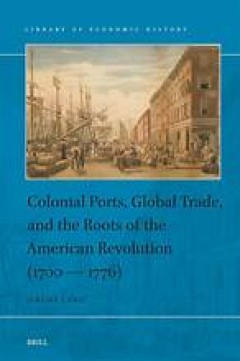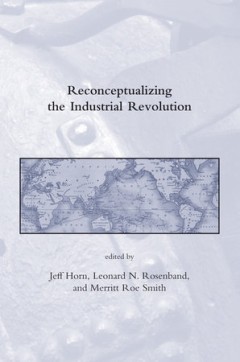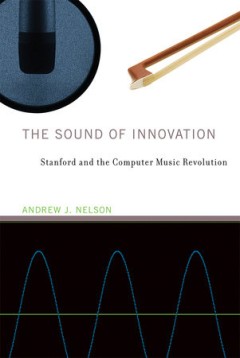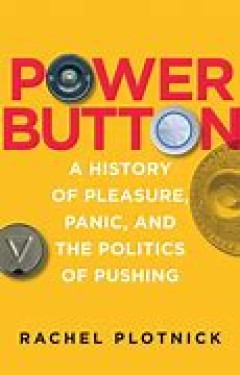Filter by

Architectural History and Globalized Knowledge Gottfried Semper in London
Gottfried Semper’s years in exile in London (1850–1855) were a time of highly inspirational experiences. The London of the first World Expo offered the German architect an immense trove of objects for study and an intellectual surrounding that provided seminal impulses for his innovative cultural-history-based theory of architecture. That revolutionary period found not only politics and soc…
- Edition
- -
- ISBN/ISSN
- 978-3-85676-409-8
- Collation
- oer.unej.ac.id
- Series Title
- -
- Call Number
- -

Curaçao in the Age of Revolutions, 1795-1800
From 1795 through 1800, a series of revolts rocked Curaçao, a small but strategically located Dutch colony just off the South American continent. A combination of internal and external factors produced these uprisings, in which free and enslaved islanders particiapted with various objectives. A major slave revolt in August 1795 was the opening salvo for these tumultuous five years. While this …
- Edition
- -
- ISBN/ISSN
- 978-90-04-25358-2
- Collation
- oer.unej.ac.id
- Series Title
- Caribbean Series, Volume: 30
- Call Number
- -

Colonial Ports, Global Trade, and the Roots of the American Revolution (1700 …
This book takes a long-run view of the global maritime trade of Boston, New York, and Philadelphia from 1700 to American Independence in 1776. Land argues that the three cities developed large, global networks of maritime commerce and exchange that created tension between merchants and the British Empire which sought to enforce mercantilist policies to constrain American trade to within the Bri…
- Edition
- -
- ISBN/ISSN
- 978-90-04-54270-9
- Collation
- oer.unej.ac.id
- Series Title
- Library of Economic History, Volume: 18
- Call Number
- -

Reconceptualizing the Industrial Revolution
Closely linked essays examine distinctive national patterns of industrialization.This collection of essays offers new perspectives on the Industrial Revolution as a global phenomenon. The fifteen contributors go beyond the longstanding view of industrialization as a linear process marked by discrete stages. Instead, they examine a lengthy and creative period in the history of industrialization,…
- Edition
- -
- ISBN/ISSN
- 9780262289504
- Collation
- 1 online resource (vi, 356 pages).
- Series Title
- -
- Call Number
- -

The Sound of Innovation: Stanford and the Computer Music Revolution
How a team of musicians, engineers, computer scientists, and psychologists developed computer music as an academic field and ushered in the era of digital music. In the 1960s, a team of Stanford musicians, engineers, computer scientists, and psychologists used computing in an entirely novel way: to produce and manipulate sound and create the sonic basis of new musical compositions. This grou…
- Edition
- Ed. 1
- ISBN/ISSN
- 9780262328814
- Collation
- -
- Series Title
- -
- Call Number
- 789 NEL s

Power Button: A History of Pleasure, Panic, and the Politics of Pushing
Push a button and turn on the television; tap a button and get a ride; click a button and "like" something. The touch of a finger can set an appliance, a car, or a system in motion, even if the user doesn't understand the underlying mechanisms or algorithms. How did buttons become so ubiquitous? Why do people love them, loathe them, and fear them? In Power Button, Rachel Plotnick traces the ori…
- Edition
- -
- ISBN/ISSN
- 9780262347501
- Collation
- 1 online resource
- Series Title
- -
- Call Number
- -

A gallery of recuperation
"A brutal takedown of post-'68 French intellectuals and an analysis of how revolutionary thought gets appropriated, diluted, and assimilated by the very society it opposes"--OCLC-licensed vendor bibliographic record.
- Edition
- -
- ISBN/ISSN
- 9780262375269
- Collation
- 1 online resource
- Series Title
- -
- Call Number
- -

Progressive enlightenment :the origins of the gaslight industry, 1780-1820
An argument that the gas industry was the first integrated large-scale technological network and that it signaled a new wave of industrial innovation.In Progressive Enlightenment, Leslie Tomory examines the origins of the gaslight industry, from invention to consolidation as a large integrated urban network. Tomory argues that gas was the first integrated large-scale technological network, a de…
- Edition
- -
- ISBN/ISSN
- 9780262301244
- Collation
- 1 online resource (x, 348 pages).
- Series Title
- -
- Call Number
- -

Otto Bauer (1881-1938) Thinker and Politician
Gegenstand des Buches ist die Darstellung Otto Bauers als führende Gestalt des Austromarxismus und der SDAP, sowie die kritisch-analytische Lesart seiner philosophisch-historischen, wirtschaftlichen, soziologischen und sozialpolitischen Theorien, die vor dem Hintergrund der damaligen Diskussion in der II. und der III. Internationale, der politischen Ereignisse in der SDAP, der internationalen …
- Edition
- -
- ISBN/ISSN
- 9789004325838
- Collation
- -
- Series Title
- -
- Call Number
- -

Creating the Intellectual Chinese Communism and the Rise of a Classification
This book offers a new analysis of the intellectual and the Chinese socialist revolution. Under the Chinese Communist Party, the intellectual was never simply an outspoken scholar, a browbeaten artist, a supportive official, or any kind of person facing an increasingly powerful political regime. The intellectual was first and foremost a widening classification of people based on Marxist thought…
- Edition
- -
- ISBN/ISSN
- 9780520303690
- Collation
- -
- Series Title
- -
- Call Number
- -
 Computer Science, Information & General Works
Computer Science, Information & General Works  Philosophy & Psychology
Philosophy & Psychology  Religion
Religion  Social Sciences
Social Sciences  Language
Language  Pure Science
Pure Science  Applied Sciences
Applied Sciences  Art & Recreation
Art & Recreation  Literature
Literature  History & Geography
History & Geography